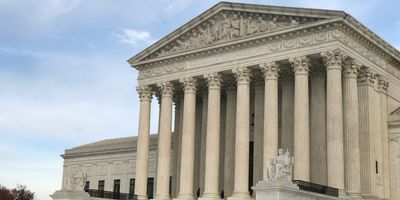On Friday, the US Supreme Court issued a ruling that hampers the Justice Department's ability to charge rioters for taking part in Jan. 6 riot on the grounds that they obstructed an official proceeding (the counting of the electoral college votes). The prosecutors were charging the rioters using a statute that forbids tampering with evidence and was enacted in 2002 in regard to the Enron accounting scandal.
In a 6-3 decision along nonideological lines, the court said that prosecutors must prove that defendants attempted to tamper with or destroy documents or “other things used in the proceeding” for the charge to apply.
Federal prosecutors have charged hundreds of Jan. 6 defendants with obstructing an official proceeding, as the Capitol attack aimed to upend Congress’s certification of President Joe Biden’s 2020 election victory. Former President Donald Trump also faces the charge in his federal Jan. 6 case.
Is this a win for Trump?"It's still unclear how this ruling impacts Trump specifically, but it could overturn many of the prosecutions against Jan. 6 defendants who are not Trump,” says Eurasia Group analyst Noah Daponte-Smith. “Even if the ruling does vacate some of the charges against Trump, it doesn't threaten the main thrust of his trial — he still faces two other charges."
